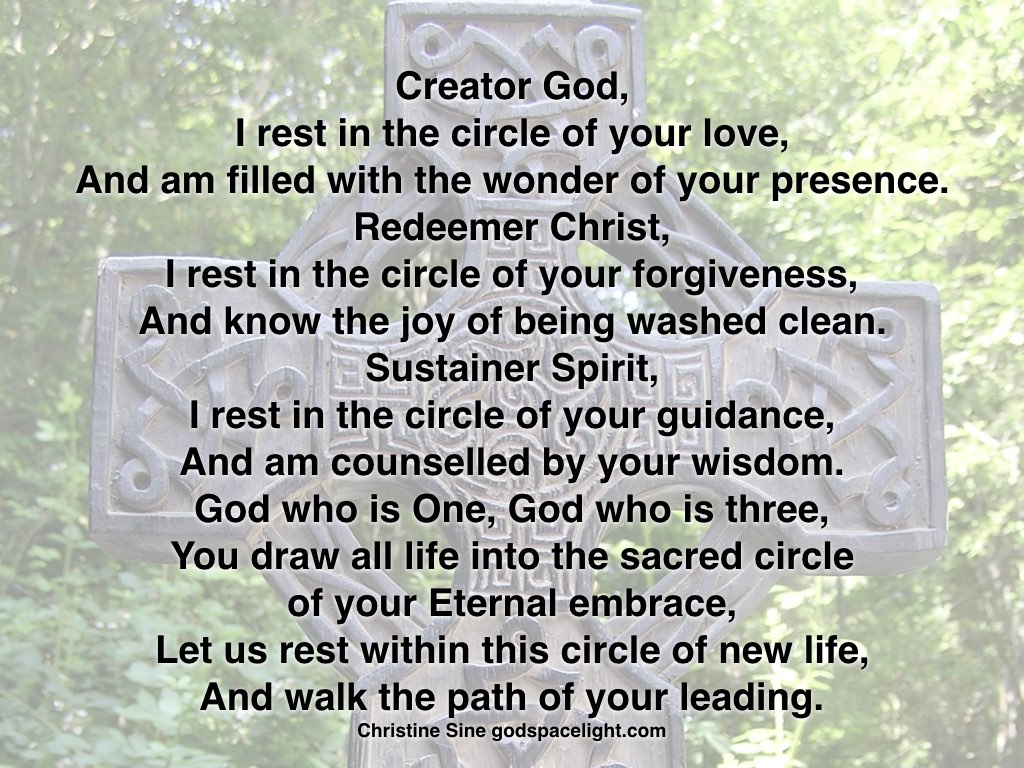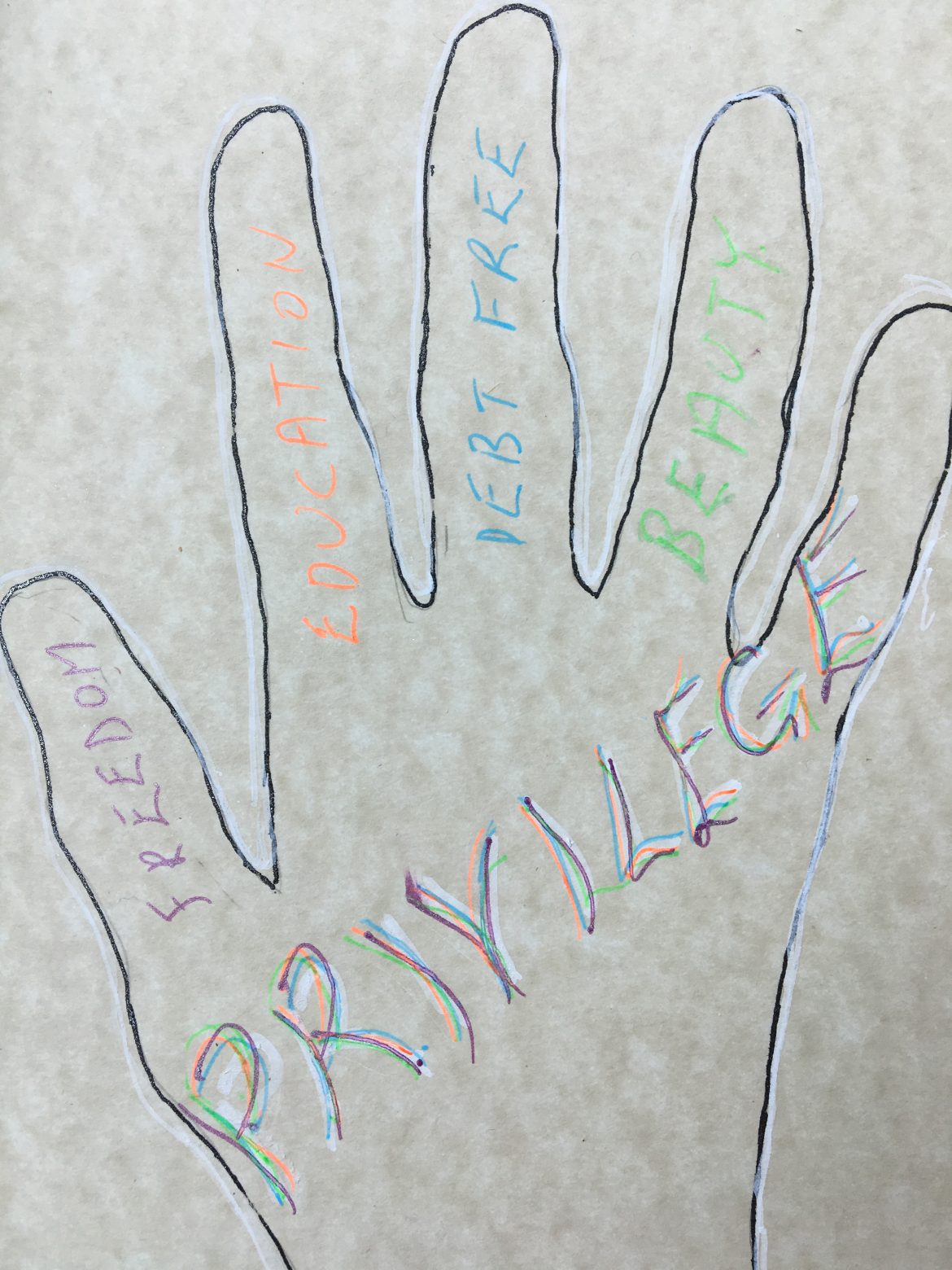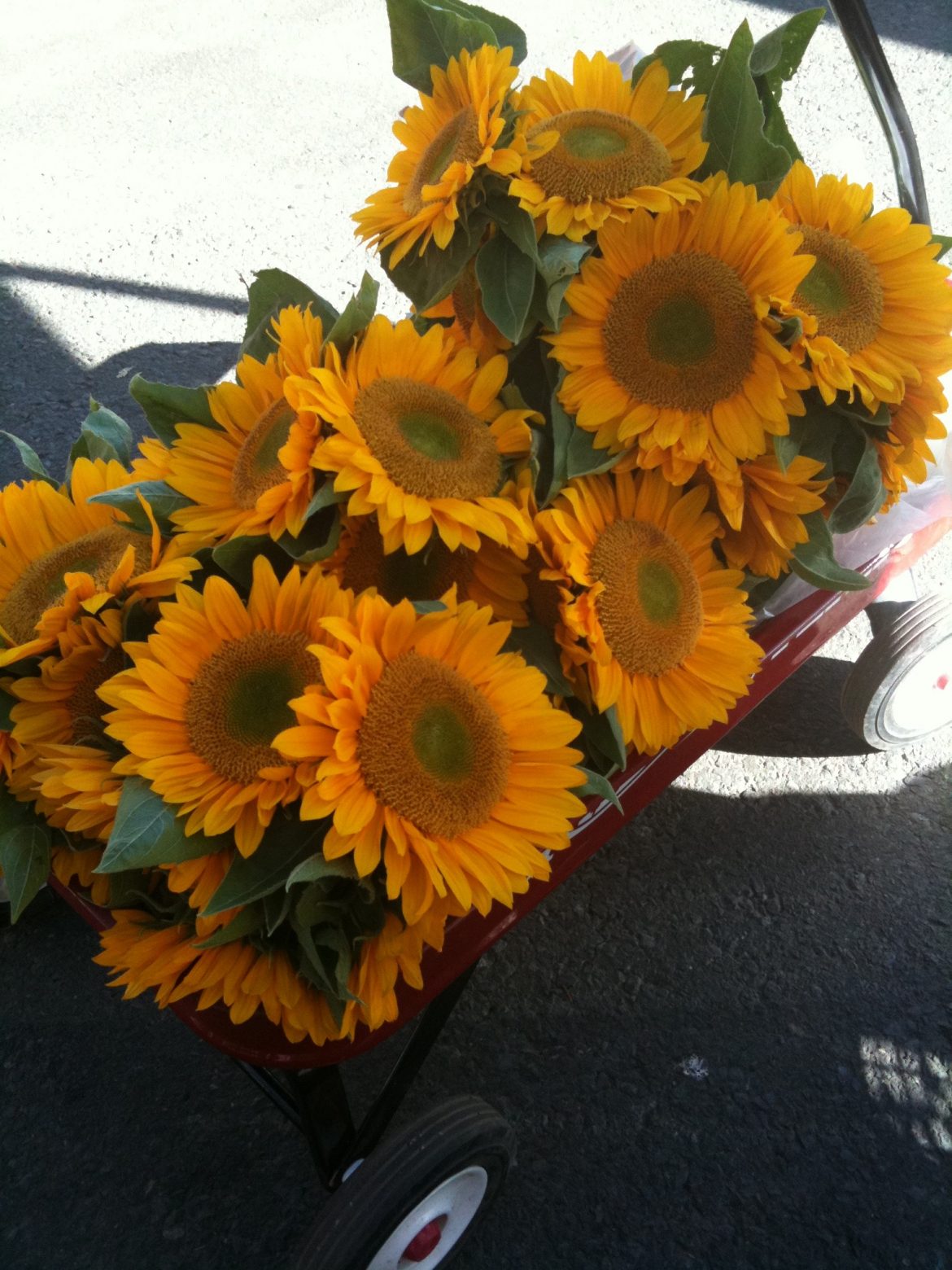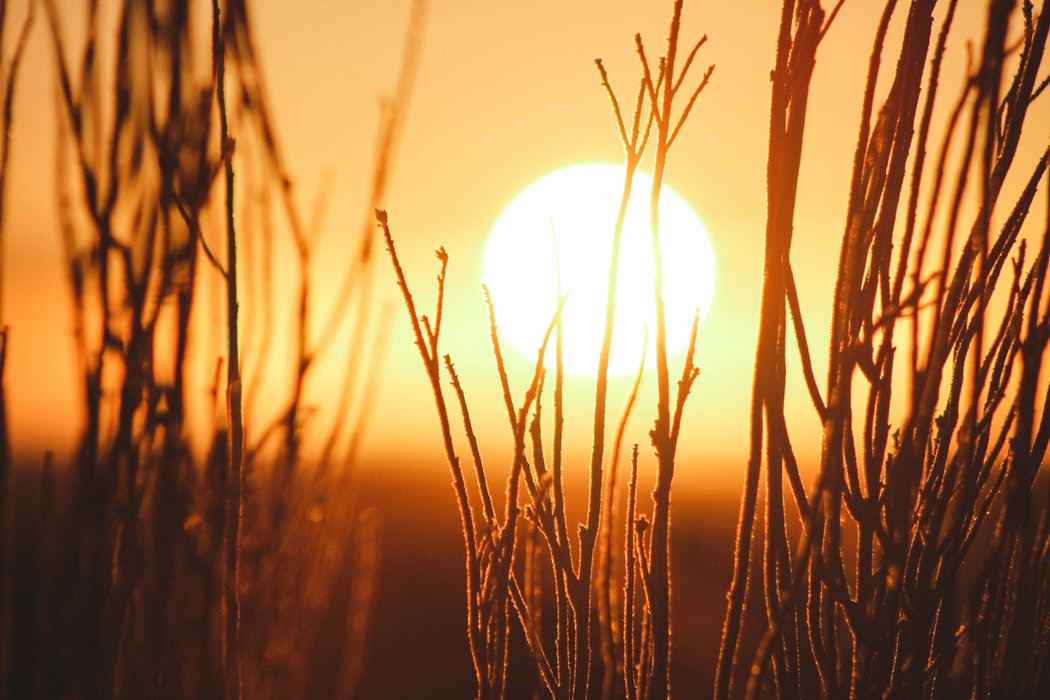by Christine Sine
There is so much turmoil and unrest in our world today that I feel constantly the need to remind myself of the encircling presence of God. I love the Celtic circling prayers which can be so easily adapted to suit our own situation. Sit in the peace of God’s circle, contemplate your own pain and joy and redraft this prayer to give you strength, comfort and an assurance of God’s abiding love.
by Christine Sine
The crisis at the border is the latest addition to a long list of instances when white people have chosen silence over what is right. Most of the white people who supported civil and voting rights still did not march, boycott or sit in. The white people who shed tears over police videos won’t attend a Black Lives Matter meeting.
Cowards. All of them.
“If you are neutral in situations of injustice, you have chosen the side of the oppressor.”
—DESMOND TUTU
This quote from White People Are cowards really caught my attention this week, and I find myself grappling with its compelling message as I trace my handprint once more. This time I used my right hand – my dominant hand – reminding myself that I am one of the privileged and dominant people in our world.
PRIVILEGE – this was the word that came to me as I thought about what shapes my life today. It deluged me, swamping out all other influences in my life.
My life is shaped hugely by privilege. As I sit here in my comfortable office looking out towards the Olympic mountains, surrounded by the verdant green and beauty of my garden, I am very aware of it.
There is the privilege of WHITENESS which the article above addresses. I thank God for people like Dr Brenda Salter McNeil and the compelling book White Fragility by Robin DiAngelo that help me grapple with issues like this and compel me to respond. Unfortunately white fragility often gets in the way and sends us fleeing in the wrong direction.
To accept that we surely have unconscious investments in whiteness—investments we might not yet fully understand. To seek out the perspectives of people of color, embrace the discomfort that might result, and avoid confusing that discomfort with literal danger. To start uncomfortable conversations with family and friends. To breathe slowly. And, perhaps most important, to remember that we should do all this not for people of color, but instead for ourselves, in the spirit of honesty and truth-telling. If white people truly did what it took to shed their fragility, DiAngelo argues—perhaps skipping a few steps—”not only would our interpersonal relationships change, but so would our institutions … because we would see to it that they did.” (read the entire article here)
What is not obvious in the handprint above is that I have surrounded my tracing with a white outline. All the other privileges of my life are in many ways held together by the privilege I enjoy because of my WHITENESS.
And there are many other privileges in my life that shape who I am. These are the ones that come to mind today:
The privilege of EDUCATION. There was never any question about me going to University. It was assumed that I would. I got to choose medical school over other forms of training, but the privilege of education was taken for granted
The privilege of a DEBT FREE LIFE. Believe it or not Tom and I have no debts. My education in Australia was free, which meant I graduated from medical school debt free. Tom bought our house in Seattle when there were signs all over the city saying: Will the last one out of town please turn out the lights. No one thought Seattle would become one of the most expensive cities in the U.S. We have benefited hugely from this wise decision. On top of that, in spite of the fact that I have worked all my life as a volunteer, we are financially secure or as secure as one can be in today’s world.) My parents’ frugality left us with a financial legacy that has blessed us in incredible ways. In a world in which a growing number of people, especially young people cannot afford to buy houses we own a house. In the U.S., according to this Harvard study, not only are housing prices increasing but rents are too. People from students to families are living in their cars or on the streets.
The privilege of FREEDOM. I was born free and live free. I take for granted that I can travel almost all over the world. I am never questioned at the airport security like many of my African American friends. I am free to practice my religion without sacrifice, unlike my friends in Myanmar, China and other restrictive countries. My days are not haunted by the possibility of war and violence and bombing, a world I caught a glimpse of when I worked with refugees in the 80s and 90s.
As a woman too I have freedom beyond what most women know. Yes I have been told that I think more like a man than a woman. Yes as a single woman in medical practice I was told it was wrong for me to earn more than a married man. And yes I have been groped, hassled and looked down upon on numerous occasions but I have always had the freedom to follow my dreams, with the strong support of my husband and friends.
The privilege of BEAUTY. There is no doubt about it, the Pacific NW is a beautiful part of God’s creation and I have the privilege of experiencing it every day. All of us struggle with the impact of pollution in our world, pollution which has stripped forests, contaminated soils and devastated communities. We struggle too with the consequences of natural disasters – hurricanes and floods that deluge and destroy, droughts that leave sandy deserts in their wake. All of these my life has only experienced on the margins.
The privilege of FRIENDS, FAMILY and COMMUNITY. As I read about the forceable separation of kids from their parents at the U.S. border and watch the flow of refugees across the globe that also separates families and leaves communities devastated, as I reflect on the history of my African American friends whose families were separated by slavery and oppression, I realize I am indeed the most privileged of people. I have family in Australia who become more precious every year. I have friends around the world whose lives continue to challenge and guide me. And I have community here in Seattle – the Mustard Seed House, where we live is divided into three apartments. We live on the middle floor with a family of 4 above us and a young couple below. We share meals and spiritual practices once a week and garden together once a month. It is special, enriching and strengthening of my faith.
This week we also hosted two very different groups of people who make me even more aware of this privilege. A group of our friends from here in Seattle, some of whom have known us for 30+ years gathered for our first BBQ of the season. To the mix we added a friend from the U.K and new friends from New Mexico.
This was followed by a gathering of friends from the early days of my life on board the mercy ship Anastasis – a special time with friends I knew in Greece in the early 1980s. We shared a Greek feast, memories and fun together.
In a world where many people have no enduring friendships I am indeed privileged.
What Is Your Response?
How do we break the silence? How do we move beyond our white fragility to build bridges not walls?
Everyone who reads this blog is privileged. Maybe you don’t have the privileges I do but I hope that today you will take time to sit in the presence of God and become more aware of your privilege and blessings. What are the privileges that shape your life? Take out your journal and make a list.
Now comes the challenging and to be honest scary part. There are consequences to admitting our privilege. It beckons us to respond, to give up our privilege and share its benefits with others.
Where have you created walls and not bridges? Where have you kept silent when you should have spoken out? Prayerfully consider how God would ask you to respond.
by Lilly Lewin
Sunflowers are my favorite flowers! I love tulips too, but there is something about the yellow brightness of a sunflower that always makes me smile. I lived in Northern California for four years, and there the freshness of the sunflowers amazed me. They were freshly cut at the farmer’s market and so unlike the kind I’d experienced in Ohio where they’d been picked, packed, and trucked cross country. This week, I need the newness of a farmer’s market, northern California sunflower. The abuse of children and families on our southern border and the rhetoric and lack of compassion from our government is hard to handle. I need to be reminded that God is in control and Jesus invites me daily to trust that His love can heal and conquer the hatred and division around us. I want to be like the Sunflower and face Jesus and reflect his light! I don’t want to live in fear, or despair or bitterness because I cannot fix things.
This reminded me of a prayer station I created a few years ago inspired by m friend Martha Vetter. God spoke to her through the many sunflowers, both living and dried up, that she saw along the Way as she walked on pilgrimage on the Camino di Santiago.
Maybe you need to be a renewed by the Sunflower and the Son today. Find a sunflower, some sunflower oil, or use some olive oil and allow Jesus to anoint you with His LOVE!
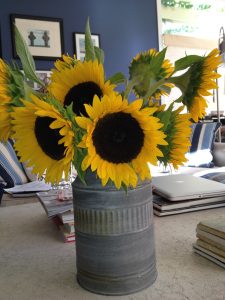
Consider the Sunflower
Anoint yourself with Oil
God is choosing you!
Consider the Sunflower
REMEMBER: God, through Samuel, anointed David when he was only a shepherd boy. David had not even been invited to the gathering, he was out taking care of the sheep.
Yet God knew David, and God had already called David for God’s own. God had big plans for David and God has big plans for YOU!
“God spoke to me using the image of sunflowers. He told me “Stand tall like the sunflower. Be beautiful, bold and bright like the sunflower. Remember that the face of the sunflower always looks towards the sun. The oil from the seeds of the sunflower is a symbol to you of my anointing. And even when the seeds begin to die, remember that the birds of the air are nourished by these seeds.
It is THEN, during the dying process, that the seeds are able to provide life, not death.”
Martha Vetter while on on pilgrimage Cammino di Santiago di Compostela
Anoint yourself with sunflower oil
Picture Jesus touching you with his great love.
Allow God to hold you.
Allow God to heal the broken places of the week, and the last year.
Picture God anointing you for ministry & God’s service.
Allow God to call you again! Allow God anoint you for new things, new ministry, new places, new people, this year.
Consider the Sunflower!
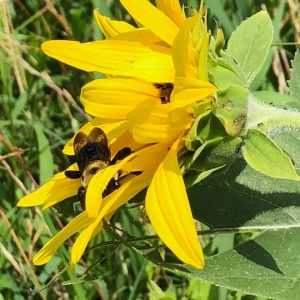
By John Birch —

By Jan Blencowe —
Probably the best known words of St. John the Baptist are “He must increase, but I must
decrease”. If you hail from a Christian tradition that marks the Saint’s Days around the wheel of
the Liturgical Year, then you’ll know that St. John’s Day falls on June 24th, the fourth day after
the summer solstice on June 21 – today!
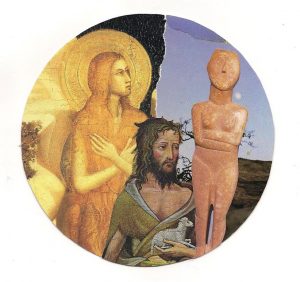
This alignment of holy remembering and natural phenomenon is no accident. In the Western
world our thinking for the past three centuries has been shaped and dominated by scientific
thought. We tend to hold in the highest regard that which can be known empirically, and so take
little notice of the carefully planned dates within the church year that are symbolically rich and
hold metaphors and mysteries for the soul to ponder. In fact, to experience these symbolically
significant seasons you must do so in the interior landscape of your soul. Yet, you may enter
that interior world through noticing and participating in the rhythms and events in nature and
even more so through the language of images used in the creative process.
At this moment in the year John’s famous words mirror perfectly what is happening in the
cosmos. The sun, which has been increasing its presence since its re-birth at the winter solstice
in December, and more dramatically so since the spring equinox in March, climbs higher in the
sky each day bringing with it the long days and short nights we associate with June.
At the summer solstice the sun seems to hover, standing still for three days. June 24 is the very
first day in the year that the sun begins to decrease and we lose the smallest fraction of daylight
hours. This is the day the Church marks as St. John’s Day, in part as a celebration of his insight
into the preeminence of The Christ and the transformation of The Self.
In our collective imagination across times and cultures the sun often represents force, power,
strength, and self. In short, ego. It is the decline of the out of balance ego or Self that I think
John is hinting at in his famous words which foreshadow Paul’s declaration that it is “no longer I
who live, but Christ lives in me” and dovetails with Jesus’ own words ‘Truly, truly, I say to you,
unless a grain of wheat falls into the earth and dies, it remains alone; but if it dies, it bears much
fruit.’
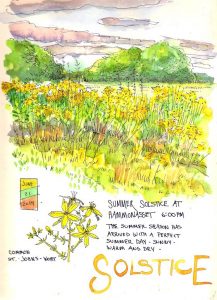 One of the ways my heart and mind are brought back around to this theme of increase and decrease, natural self and Christ-Self each year at this time is by creating art that delves into these potent internal movements of soul and self.
One of the ways my heart and mind are brought back around to this theme of increase and decrease, natural self and Christ-Self each year at this time is by creating art that delves into these potent internal movements of soul and self.
We all live in the body and in the spirit, in this world and in the other world at the same time. My two favorite art making types reflect this. My nature journal attunes me to the natural world and helps me unearth the spiritual wisdom hidden there. My mixed media work allows me to have a visual language that gives voice to the heart and soul.
Every summer solstice I take my nature journal and head out looking for St. John’s Wort, which is easy to find. You’re likely to find some in your area without having to look too hard. This naturalized wildflower originated in Europe, came with the settlers, and has since made its
home across much of North America. It blooms right at the summer solstice and St. John’s Day,
thus its name. Its botanical name is Hypericum perforatum. It sports a beautiful yellow, five
pointed, star shaped flower with long stamens, and has been dubbed a ray of Earth-bound
sunshine. It tends to creep and can fill wide open meadow spaces over time.
Sitting in a meadow of St.John’s Wort, soaking in the warmth of the sun, listening to the bees
humming their secret song, and focusing my gaze on the edges and outlines of flower and leaf
is a something I look forward to each June. Observational drawing is a quiet activity, and once
you get the hang of it, and your eye and your hand are working in concert, your mind is free to
wander a bit, musing and considering deeper thoughts as you work. The flowers of St. John’s
Wort become living icons, inviting me to sink deeply into the words increase and decrease and
what they might mean for me.
At the summer solstice I also like to work with found images that relate to the themes that
accompany summer solstice and St. John’s Day. By gathering images and combining them I
invite the inner wisdom of my soul to speak. These simple collages often hold powerful
message and expressions of my inner life. I like to call the process soul work.
Art can be drawing and painting, it can be tearing up images and gluing them down, it can be
planting a garden, it can be many, many things.
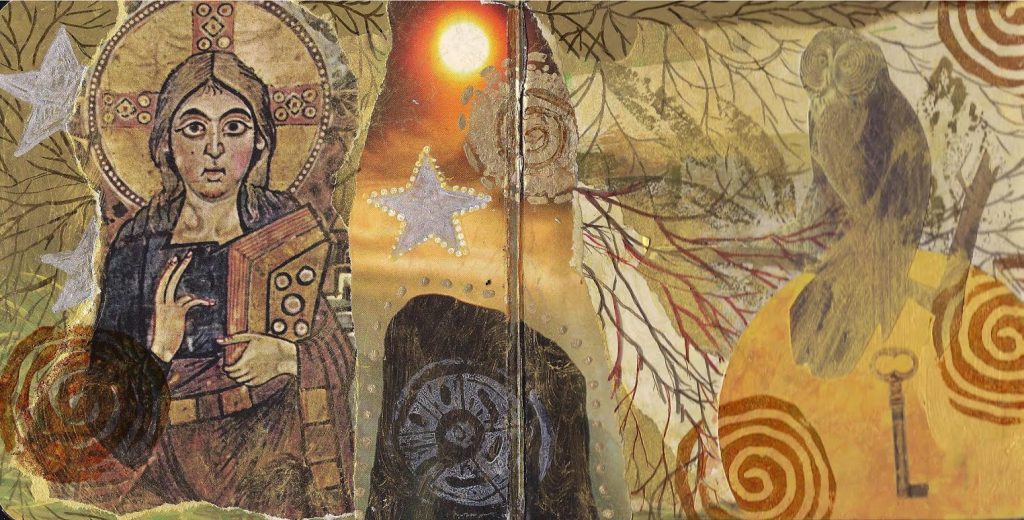
Marking the events of both the seasonal year and the liturgical year by creating art in any form,
is a powerful way to manifest the connectedness of your inner and outer life. It is a way to bring
the sacred forward and allow it to gently infuse all parts of your life and self with the grace that
harmonizes what must increase and what must decrease within your soul at this moment on
your journey.
I hope the brightness of this summer’s solstice day inspires you to create around the themes of
sun/son, increase/decrease, outer landscape/inner landscape in ways that are meaningful to
you.
By Jenneth Graser —
I find you under crushed weeds lining the path
of our morning rambles.
Someone got here first and strew them out of the way,
pulled up by the roots.
How many things are you pulling up by the root
to reveal the turned over loam in us?
The sun briskly challenges the mountain,
which cannot hold back the pure poured-out light
generously misting the dew amongst reeds,
all standing like champions and witnesses.
I am being attended by the chorus of rooster,
a playful enterprise of birds so unafraid.
My prayers tumble out of my mouth
into the cracks of the valley, exposing lies for lies,
truth for truth.
We can walk here and stop being fearful of
what could be lurking in every unknown future.
We can run here and feel what it is to
have the blood surge through our muscles,
reminding us that we are a body too,
a temple called into the holy of a body-made prayer.
First thing in the morning, when the sun is bursting
at its seams with enthusiasm and there is
so much breath puffing out like clouds
all over the trails, and the day is waking, waking,
waking up all over the place.
I am waking up too.
Help us know what YOU want to read!
We are desiring your input on what you like most about Godspace and what you want to see in the future! Please take 45 seconds of your time to fill out this survey for us so we can better serve you in the future!
Thank you!
As an Amazon Associate, I receive a small amount for purchases made through appropriate links.
Thank you for supporting Godspace in this way.
When referencing or quoting Godspace Light, please be sure to include the Author (Christine Sine unless otherwise noted), the Title of the article or resource, the Source link where appropriate, and ©Godspacelight.com. Thank you!

